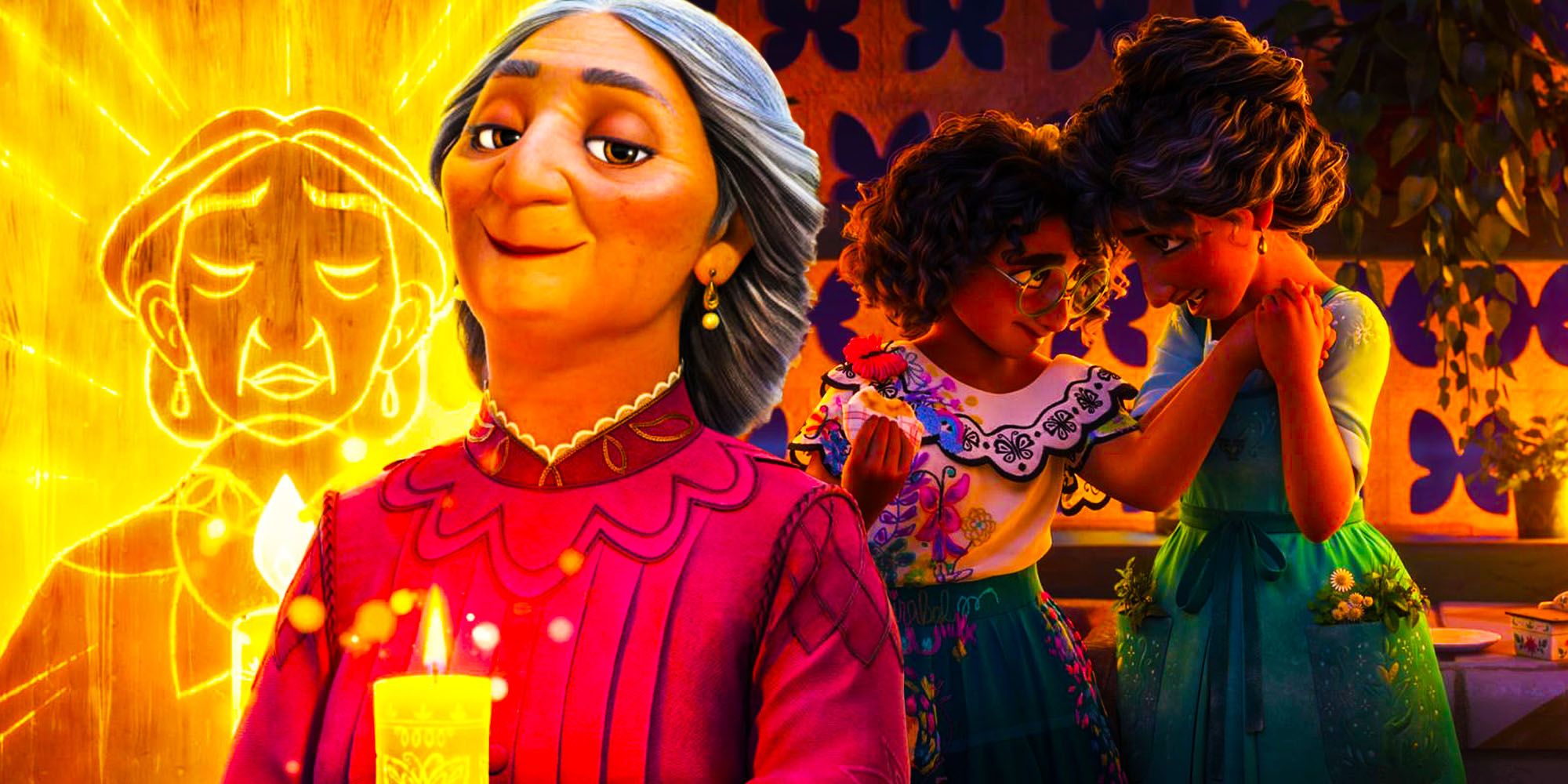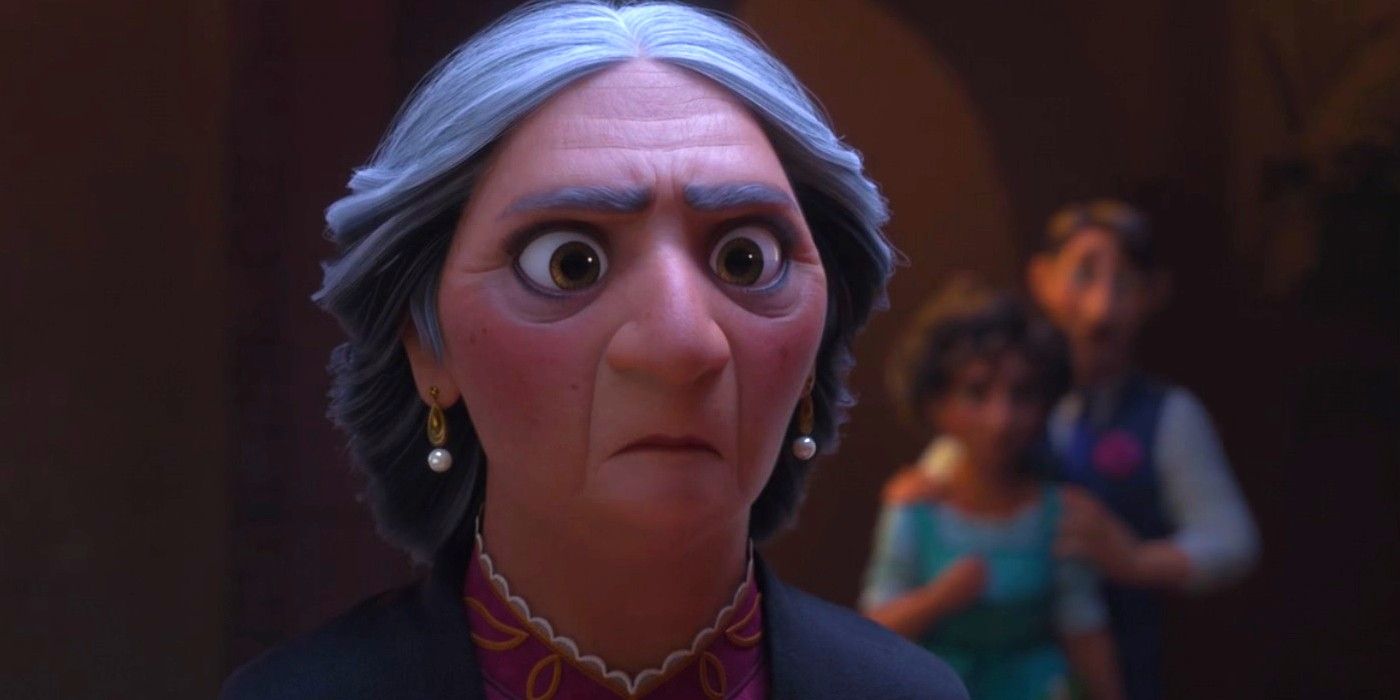Encanto's Unique First Makes A Disney Trend Much Darker

Encanto's unique first makes a common Disney trend involving families much darker. Disney movies have many common trends that appear again and again in their films, and one such trend involves motherhood. Parents are often absent from Disney stories, mothers most of all, only to be replaced by stepmothers who do not have the child's best interests at heart. Encanto rejects this trope by choosing to create much more nuanced motherly characters.
In Encanto, 15-year-old Mirabel is the only member of her family without a special power. She tries hard to please her grandmother Alma even though nothing she does is ever good enough, and she's far from the only Madrigal suffering under the weight of expectations. Despite how perfect they appear on the outside, the Madrigal family secretly struggles with burdens they feel they cannot share, in no small part because of the expectations Alma has for her family. This dynamic gets bad enough that Alma's son Bruno hides away altogether, choosing to live alone within the house's walls rather than continue living with that weight. Although it was never her intention to hurt her family, by seeking such unattainable greatness for everyone, Alma became Encanto's "villain," putting a new spin on an old Disney trend.
Encanto is the first Disney movie in which a biological mother is the villain of the story. Disney movies often include absent mothers or evil stepmothers, but Encanto does neither of these. Not only is Mirabel's mother Julieta present, Julieta's mother, the matriarch Alma, is the movie's villain because of her fear of losing everything she worked so hard to gain. This is something of a Disney first since no birth mother has ever been presented as the antagonist — stepmothers typically become the villain when they view the child as a threat to them and their status in the family. The idea of the biological mother casting her children out, even unwittingly through misguided idealism, is far darker than the otherwise black and white morality moms usually display in Disney films. However, there are also upsides to portraying such different types of mothers.

With the exception of Simba's mother Sarabi in The Lion King, birth mothers in Disney movies are usually killed off, absent, or overlooked. This paves the way for the main character, especially female protagonists in Disney princess movies, to either have some sort of conflict with their stepmother, like in Cinderella, and/or have to fill that motherly role in the household herself, like in Beauty and the Beast. This limited perception of motherhood says that "true" mothers, those who wanted to be one, can do no wrong. Their perfection would make it difficult for any conflict to drive the movie's plot forward, and so they must be removed from the story altogether. Pixar's Brave movie, which revolves around a difficult relationship between mother and daughter, does incorporate the mother a fair amount in the film, but she's not actually the bad guy since Merida's perception is just as much at fault for the conflict between them. Encanto, on the other hand, expands on the roles a mother can have in a Disney film.
Making a biological mother the villain of Encanto darkens Disney's trend of evil or absent mothers, partly because the conflict Alma unknowingly creates is one that many viewers might be all too familiar with — that of a parent with far too many expectations heaped on their child. Portraying different kinds of family dynamics on screen can help Disney expand the stories it tells as well as widen the types of audiences who relate to them. The underlying conflict in Disney's Encanto movie might be darker in some ways, but that can also make its heartfelt message that much sweeter.
from ScreenRant - Feed https://ift.tt/3ezZOUT
via Whole story

Post a Comment